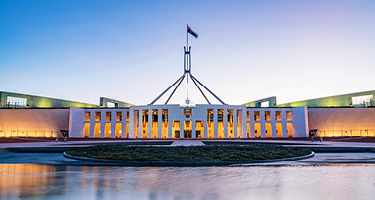The Decision
On December 29, 2016, the Washington State Supreme Court issued a decision in Snohomish County et al v. Pollution Control Hearings Board holding that local storm water regulations adopted under the federal and state stormwater permit system are not “land use control ordinances” subject to state statutory vested rights protections.
The result of the case is likely to have immediate and significant implications for a large number of property owners and developers in Washington.
The case involved the implementation of the Department of Ecology’s Phase I 2013-2018 Municipal Stormwater Permit, which governs pollutant discharges to large municipal storm sewer systems under the federal National Pollutant Discharge Elimination System (“NPDES”) permitting program. Local governments subject to the Phase I permit were required to adopt ordinances to implement minimum requirements, thresholds, and definitions in the new permit to apply to all applications for development or redevelopment after June 30, 2015, which had not started construction by June 30, 2020. Snohomish County, King County, and the Building Industry Association of Washington challenged this permit condition because it compelled those jurisdictions to “retroactively apply new storm water regulations to completed development applications” contrary to state vested rights doctrine. The Pollution Control Hearings Board (“PCHB”) ruled in favor of Ecology; on appeal, Division II of the Court of Appeals reversed the PCHB, holding that the subject stormwater regulations were “land use control ordinances” and therefore subject to vested rights protections, applying the terminology used in the state subdivision (RCW 58.17) and building permit (RCW 19.27) statutes.
In a unanimous decision, the state Supreme Court reversed the Court of Appeals, holding that the vested rights doctrine does not preclude the retroactive application of stormwater regulations adopted by local governments in compliance with the 2013 Phase I permit. In reaching this conclusion, the Supreme Court determined that in the context of the municipal stormwater permits, local storm water regulations result from a state (and federal) mandate. Based upon review of legislative history and case law, the Court reasoned that vested rights protections were designed to limit the application of regulations that are within municipal discretion to enact, as opposed to regulations that local governments are required to adopt in order to comply with state, or federal, law.
Applying the Decision
What will the decision require local governments to do? At a minimum, Washington cities and counties subject to the Phase I and Phase II NPDES municipal stormwater permit requirements will be required to apply the provisions of new stormwater regulations to vested projects, including previously approved preliminary and final plats, for development applications submitted as of the date specified in the permit. For Phase I jurisdictions, this means the new stormwater regulations must be applied to all development and redevelopment applications which were submitted on after July 1, 2015. For Phase II jurisdictions in Western Washington, the corresponding application deadline is January 1, 2017, except for permittees in Lewis and Cowlitz Counties, which have until July 1, 2017, and the City of Aberdeen in Grays Harbor County, which has until July 1, 2018.
Where does the decision require new stormwater regulations to be applied? The Court decision applies to all cities and counties with coverage under Phase I and II municipal stormwater permits. With inclusion of Phase II, coverage includes essentially all Washington cities and counties containing regulated cities. Ecology maintains a complete list of all permittee cities and counties.
Importantly, the Phase II County permits (issued to Cowlitz, Kitsap, Skagit, Thurston, and Whatcom Counties in Western Washington) apply only to urban areas around permitted cities. Ecology also maintains a detailed map of permit coverage areas. Because the underlying reasoning of the Court’s decision in the case negating vested rights protections was based upon the adoption of the subject stormwater regulations as a result of state and federal requirements of NPDES permit coverage, we believe Phase II counties should not apply new stormwater regulations to projects located outside the mapped NPDES permit coverage area on the basis of this decision.
What does this mean for ongoing subdivision projects in covered jurisdictions?
1. Preliminary plat approved prior to the permit deadline, but complete development applications for plat improvements were not submitted: new stormwater regulations will apply to the development of plat improvements, as well as later permits for construction of individual homes after final plat.
2. Preliminary plat approved and complete development applications for plat improvements submitted prior to the permit deadline: plat improvements will not be subject to new stormwater regulations, but new regulations will apply to permits for development of individual homes after final plat approval.
3. Final plat completed prior to the permit deadline, construction of individual homes within the plat ongoing, but within five year subdivision vesting period: permit applications for development of individual homes within the plat submitted after the deadline will be subject to review and compliance with new stormwater regulations.
Implications and Impacts
In the short term, it seems that significant impacts are likely. Up to this point, plats have enjoyed at least a 10-year vesting period under state law, even longer for some projects following recession extensions under the subdivision statute. It is entirely possible, and even likely, that application of new stormwater regulations to permits for construction of plat improvements will result in loss of approved lots from the preliminary plat phase to final plat. And, more lots may be lost as new regulations are applied to the development of each individual lot within the subdivision at the time of building permit application. The full extent of the decision’s economic impact remains unknown; however, applicants may find some relief through use of deviation and infeasibility provisions found in most implementing stormwater ordinances.
At a minimum, project applicants will experience ongoing uncertainty and likely increased compliance costs. Rules will remain subject to constant change, and the development community will need to account for this potential risk. In addition, the decision is the latest in a series of Washington cases that appears to not recognize the constitutional underpinnings of the vested rights doctrine as it developed in our common law, a position sure to be used in challenges to other types of permits and projects moving forwards.




















